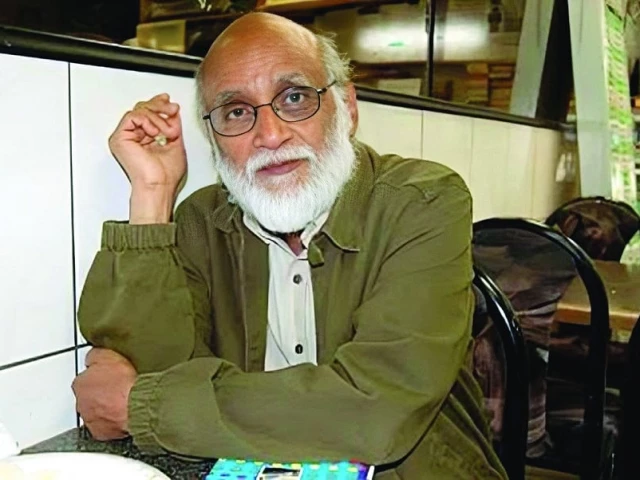Renowned Urdu scholar, author and translator CM Naim died at age 89 on Wednesday in Chicago, his family has told the press.
Naim’s love for Urdu literature was evident in the nearly 60 years he dedicated to painstakingly restore the language he feared was falling out of favour for good in the subcontinent. Born in Barabanki, he attended Lucknow University, followed by the University of California, Berkeley. In 1961, Naim joined the faculty of the Department of South Asian Languages and Civilizations at the University of Chicago, which he later chaired from 1985 to 1991. He remained associated with the university until 2001. As a mark of the impact of his decades of teaching, Naim was conferred the title of Professor Emeritus.
Naim’s extensive bibliography comprises a large collection of research publications, translations, and articles. His notable 1989 essay Two Days in Palestine for the New York monthly magazine The Message International (with the title later being changed to In the Eye of the Intifada, A Muslim’s Journey to the Land of Oppression) still resonates today, over three-and-a-half decades after it was written.
Experts in the field widely agree that among Naim’s most memorable work is his article on Hasrat Mohani titled The Maulana who Loved Krishna, published in Economic & Political Weekly in 2013, as well as his biographies of Mir Taqi Mir and Mirza Ghalib.
Scholars leave tribute
As per the Indian Express, Naim’s unique approach towards making Urdu approachable to everyone left an indelible mark on the global literary landscape.
“There was so much knowledge, understanding and research, but also it was so accessible,” said Indian classical singer Vidya Rao, who was also commissioning editor for Urdu Crime Fiction, 1890-1950: An Informal History (2023). “He was not writing for just a small group of people. He was reaching out to people who may not be scholars.”
Like so many others who had enjoyed a professional relationship with Naim, Rao fondly recalled the impact of his efforts to ensure the Urdu language remained entrenched within the hearts and minds of those who call it their mother tongue.
“His work was not just on literary studies, but actually on the Urdu language, its history and the cultural world, which is very important because otherwise we tend to see a language as separate from the lived life of the people,” Rao stressed.
As per the publication, Khalid Alvi, Naim’s close friend and former professor at Zakir Husain Delhi College, agreed with Rao’s fond memories of the late Urdu scholar. Commenting on Naim’s commitment to shining the spotlight on the Urdu language, Alvi recalled, “He was someone who would write about people and things that one would otherwise overlook. He was the person who brought people like Munshi Tirath Ram Ferozpuri and Mirza Fida Ali Khanjar Lakhnawi — who had written early detective fiction in Urdu — to the forefront.”
Noting that Naim’s expertise was not limited to merely allowing other writers to shine, Alvi added, “He also wrote about Zafar Umar, an IPS officer who took to writing after tragically losing a limb. Naim saab wrote about how one of Umar’s stories, Neeli Chhatri, was named after his home in Aligarh.”
However, Naim’s contributions were not limited to the subcontinent; his legacy includes his wealth of influence left behind in the global West for those whose heritage includes the Urdu language.
“He had a multinational personality. He didn’t teach literature but language, because he knew that language was the foundation,” noted fellow Urdu scholar Khalid Jawed, who had met with Naim in a professional capacity at the University of Virginia and Princeton University. “He had of course written, translated and edited several classical Urdu texts, but his contribution can be felt deeply in the way he shaped three generations of Urdu-speaking people in the US.”
With his endeavours and passion for preserving the Urdu language, Naim entrenched himself in the hearts and minds of those he encountered throughout his professional life. Professor, historian and author Esmat Elhalaby summed it up best with the tribute he left to the late scholar on X: “Peace to the great CM Naim (1936-2025). When I started studying Urdu I started reading everything he ever wrote, and haven’t stopped.”

